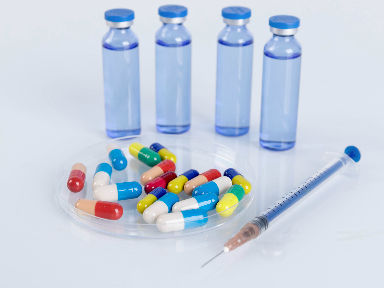drugsJuly 29, 2021
AbbVie (NYSE: ABBV) today announced that the U.S. Food and Drug Administration (FDA) approved Dalvance® (dalbavancin) for the treatment of acute bacterial skin and skin structure infections (ABSSSI) in pediatric patients from birth. Dalvance is the first single-dose option administered as a 30-minute intravenous (IV) infusion for the treatment of ABSSSI caused by designated susceptible Gram-positive bacteria in pediatric patients, including infections caused by methicillin-resistant Staphylococcus aureus (MRSA).
"Serious infections in children can be difficult to treat and the impact of ABSSSI among children is significant, as these infections often require IV antibiotics, resulting in hospitalization," said Margaret Burroughs, medical director, infectious diseases, AbbVie. "This pediatric approval for Dalvance as a single-dose provides a meaningful contribution to the treatment of children and infants with ABSSSI."
ABSSSI are bacterial infections of skin and associated tissues primarily caused by Gram-positive pathogens, including Staphylococcus aureus and Streptococcus pyogenes. While ABSSSI are common, these infections can be serious and may be life-threatening. ABSSSI are a significant source of morbidity in children. Cutaneous abscesses and cellulitis are the predominant types of skin infections evaluated by pediatricians.[1] In the United States, ABSSSI lead to 3 million pediatric health care visits per year, placing a heavy burden on the health care system.1

This approval is based on results from a multicenter, open-label, actively controlled clinical trial evaluating Dalvance in pediatric patients from birth to less than 18 years of age with ABSSSI and 3 pharmacokinetic studies. In the ABSSSI study, the safety and efficacy of Dalvance was evaluated along with intravenous vancomycin (for methicillin-resistant Gram-positive infections), or intravenous oxacillin or flucloxacillin (for methicillin susceptible Gram-positive infections). Participants were randomized 3:3:1 to receive single-dose Dalvance, 2-dose Dalvance, or comparator. The primary objective of the study was to evaluate the safety and tolerability of Dalvance. The trial was not powered for a comparative inferential efficacy analysis. To evaluate the treatment effect of DALVANCE in the ABSSSI pediatric trial, an analysis was conducted on 183 patients with ABSSSI in the Modified Intent-to-Treat (mITT) population, which included all randomized patients who received any dose of study drug and had a diagnosis of ABSSSI caused by Gram-positive organism(s). This analysis evaluated an early clinical response at 48 to 72 hours based on achieving a ≥ 20% reduction in lesion size compared to baseline and no receipt of rescue antibacterial therapy for children 3 months and older. The 5 patients in the age group birth to less than 3 months of age were not included in the efficacy analyses since they were enrolled with expanded inclusion criteria and only received the single-dose Dalvance regimen. The proportion of patients with an early clinical response was 97.3% (73/75) in the Dalvance single-dose arm, 93.6% (73/78) in the Dalvance 2-dose arm, and 86.7% (26/30) in the comparator arm.
Results from the clinical trial in pediatric patients show that the safety findings of Dalvance in pediatric patients were similar to those observed in adults.
The approved recommended dosage regimen of Dalvance in pediatric patients with a creatinine clearance of 30 mL/min/1.73m2 and above is a single-dose regimen based on the age and weight of the pediatric patient.
Dalvance for injection is a second-generation, semi-synthetic lipoglycopeptide, which consists of a lipophilic side-chain added to an enhanced glycopeptide backbone. Dalvance is the first and only IV antibiotic approved for the treatment of ABSSSI with a single dose regimen of 1500 mg and two-dose regimen of 1000 mg followed one week later by 500 mg in adults, and a single dose regimen based on age and weight in pediatric patients, each administered over 30 minutes. Dalvance demonstrates bactericidal activity in vitro against a range of Gram-positive bacteria, such as Staphylococcus aureus (including methicillin-resistant, also known as MRSA, strains) and Streptococcus pyogenes, as well as certain other streptococcal species.


Contact Us
Tel: (+86) 400 610 1188
WhatsApp/Telegram/Wechat: +86 13621645194
Follow Us:




 Pharma Sources Insight January 2025
Pharma Sources Insight January 2025


